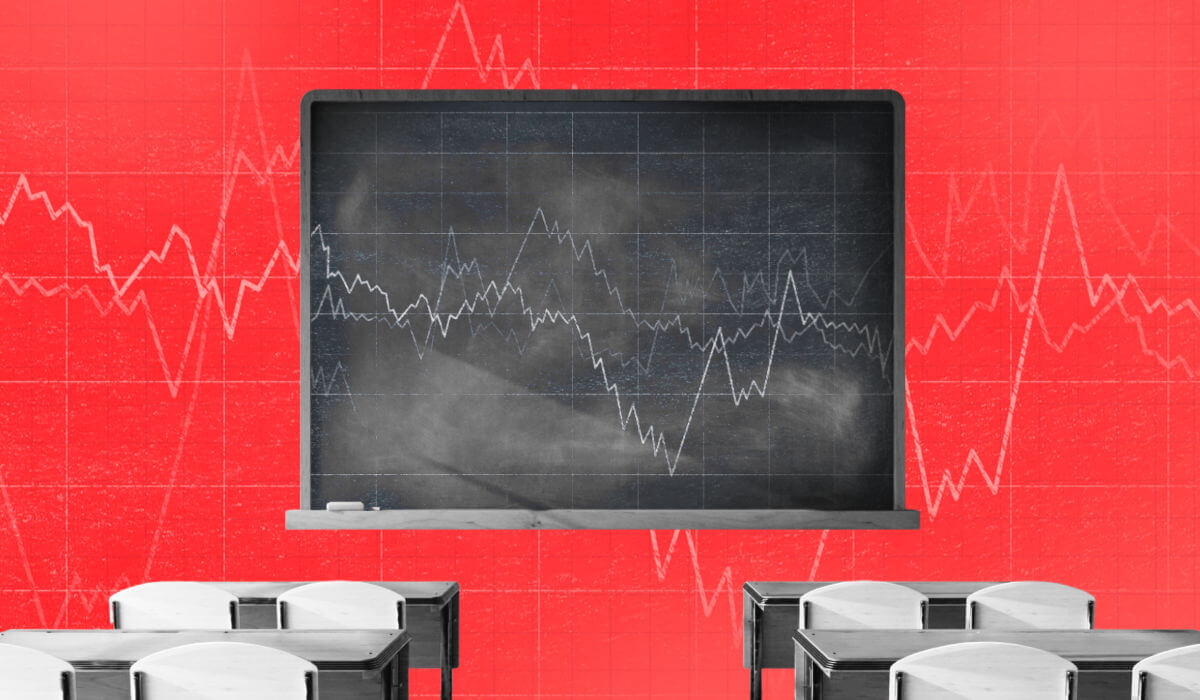Are We in a Recession? 5 Things We Learned From a Labor Economist
Are we currently in a recession? We share five things we learned about recessions from a labor economist, including a definitive answer.

In the past few months, you may have read conflicting information on whether or not we’re in a recession, or the likelihood that one is coming.
To get some answers, we interviewed Betsey Stevenson, Professor of Public Policy and Economics at the University of Michigan, and former Chief Economist of the U.S. Department of Labor. On an episode of Visier’s Human Truth podcast, Dr. Stevenson, along with podcast host Ian Cook, weighed in on the likeliness of a recession and other labor market trends.
Here are five things we learned:
1. We’re NOT in a recession—yet.
Dr. Stevenson had no hesitation in answering our first question. She confirmed that we are currently not in a recession, because by definition, a recession is marked by a period of declining economic activity. This means we would need to see less goods and services being produced month after month. Even if things slow down, it’s actual declines that matter, however, that doesn’t mean one isn’t coming.

2. Inflation doesn’t equal a recession.
Many people think that because we’re experiencing inflation, it’s a sign that we’re in a recession. Really, the opposite is true. We get to inflation during a period of over production—the economy is actually too hot, and the market is trying to produce enough to meet the demand.
During times of inflation, there is too much money chasing too few goods—we want cars or doctor appointments, and as a society, we use money to allocate who gets them—hence the increase in prices. During the pandemic, people saved money and now they want to spend it, but there simply aren’t enough goods to go around.
3. Recessions can be scary. Unemployment is worse.
While a recession can cause fear, what is actually scary is unemployment. During recessions, companies decrease production, which means they’re utilizing less of their equipment, and fewer human resources needed. This leads to unemployment. “Unemployment is terrifying. It often has lifelong negative impacts on families, on communities, on the individual who becomes unemployed,” says Dr. Stevenson. Again, a recession just signifies a decline in economic activity, it’s the consequences of that decline that make an impact.
4. What’s the wage-price-spiral?
A wage-price-spiral happens when employers want to hire more workers than what is available. This scenario creates competition to acquire them, which drives up wages. But when companies have to pay more for workers, it also means they have to pay more for their products. This then causes workers to ask for more money because now, their goods and services are more expensive than before. One way to help with this is expanding labor force participation and immigration, allowing the wage creep to slow down and meet the demand of employers.
5. The recent rapid rate of growth isn’t sustainable.
The 1-10% of tech layoffs have made headlines recently, but what is often left out of the conversation is the fact that in 2021, there was a 20-25% increase in tech hiring. These tech layoffs are a means of righting the market—and that’s not to say that the layoffs were any less painful. But rather, companies over-rotated on hiring, and now we’re seeing the consequences.
As Dr. Stevenson put it:
“And I’m like, ‘Did you not understand we had a pandemic and that pushed a bunch of people into using technology that had never used technology before? And what you just did was pulled a bunch of your business from 2024, 2023, 2025 into 2020 and ‘21 and ‘22 and now you can’t get that business in ‘23, ‘24 and ‘25. So you’ve got for sure a slowdown because you stole from your own future.’”
She finished her point by expressing that it’s okay to pull from your future, however, businesses shouldn’t assume that the same level of growth is going to continue, and need to take that into consideration.
Listen to the full episode of the Human Truth Podcast to hear more from Dr. Stevenson, and continue reading about recessions and the labor market:
Get Outsmart content straight to your inbox
Subscribe to the People Insights Monthly newsletter for actionable insights and stories.
Subscribe now